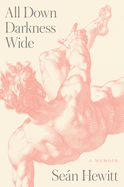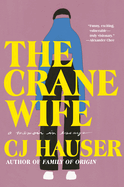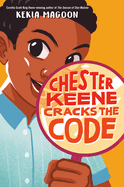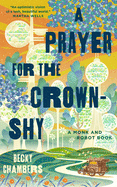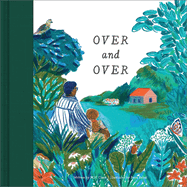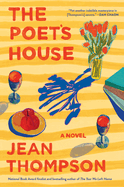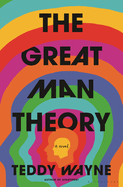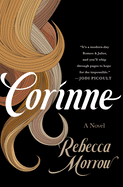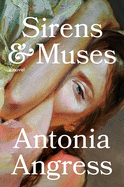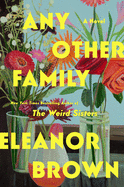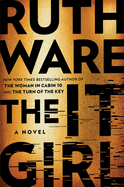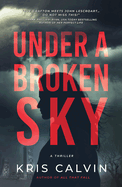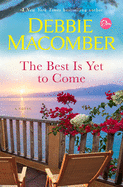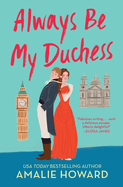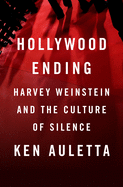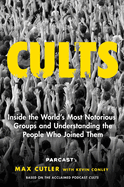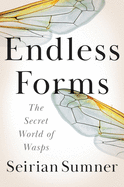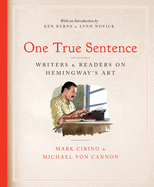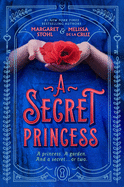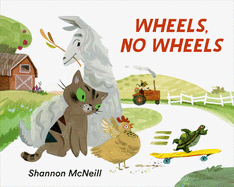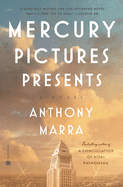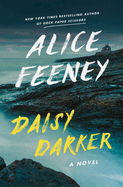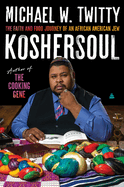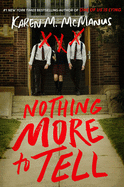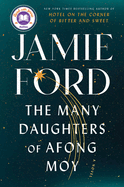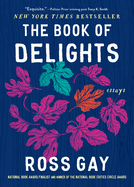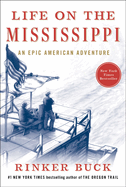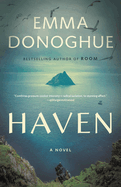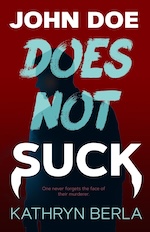Friday, July 15, 2022
This week, we review several outstanding memoirs: Seán Hewitt's All Down Darkness Wide, "as lyrically written as any book of poetry," and novelist CJ Hauser's "perceptive and witty" first work of nonfiction, The Crane Wife--as well as Chester Keene Cracks the Code, four-time Coretta Scott King Honor author Kekla Magoon's "heartfelt novel featuring two preteens trying to solve a mystery"; plus many more.
Erika L. Sánchez in The Writer's Life discusses her memoir, Crying in the Bathroom, and why it's "suffused with deeply felt gratitude, even when discuss[ing] devastating periods" in her life, as well as the importance of travel and hospitality.
Total
by Rebecca Miller
Mothers and daughters, including mothers who give birth to babies with triangular heads, populate the seven stories in Total by Rebecca Miller (Jacob's Folly). Most of these works aren't that sci-fi, but all deal with secrets and the challenges of family life. In "Mrs. Covet," a pregnant mother accepts the offer of a nanny to bring order to her house, only for the woman to create terrifying complications. The blogger who bought a farmhouse as part of a "foray into self-determination" in "I Want You to Know" finds a typed note in a small desk, one that suggests a troubling reason she could buy the house cheap. And "Vapors" chronicles a chance encounter that leads a fashion photographer, pushing her baby in a stroller, to reflect upon past loves and infidelities.
A couple of stories are thinly developed, but the best are stunners. Among them are the title story--a speculative work in which the wealthy were once able to buy expensive Total Phones, now discontinued because women users gave birth to deformed babies, and in which a healthy teenager rescues her afflicted younger sister from the Total Care Center to which she was surrendered--and "The Chekhovians," a tale of two Martha's Vineyard families, one whose wealth has climbed while the other has endured "steady downward mobility for about a hundred years." As one character puts it, "Living is like walking on the edge of a knife." These stories, at their best, show that no amount of wealth and status makes certain inclines more gradual. --Michael Magras, freelance book reviewer
Discover: Rebecca Miller's Total features seven accomplished stories that dramatize the challenges of motherhood and the pitfalls of family life.
The Poet's House
by Jean Thompson
A serendipitous meeting between a self-deprecating young woman and a famous aging poet in The Poet's House--the eighth novel from Jean Thompson (A Cloud in the Shape of a Girl; The Year We Left Home)--leads to a friendship with far-reaching and heartwarming consequences.
Carla, good-natured and hardworking, enjoys her Bay Area landscaping job and, with "one of those brains that doesn't process words on a page very well," she's skeptical of education. Nevertheless, she notes a feeling of "standing just outside of something desirable and urgent and important." Tending the garden at a remote Marin County home, she meets Viridian, a "rock-star poet" whose face revealed "a freight of history, of things lived and understood." Carla's growing fascination with poetry launches a shift in her self-esteem, and her narrative becomes increasingly thoughtful and poetic. Her inclusion in Viridian's social circle puzzles her supportive boyfriend, an IT worker, and Carla is initially shy. But Viridian explains: "It's exactly because you don't know anything. Not yet. But you want to... it's all new to you the way it has not been new to me for a long time."
Surprising plot twists, including a mystery involving valuable missing poems, take Carla to an upscale San Francisco neighborhood and a deep-woods writers' retreat, all populated with a cast of diverse, quirky characters. Even the least likable of these admire Carla and Viridian, and the story is enhanced with dialogue ranging from laugh-out-loud funny to lines of poetry. The Poet's House forecasts hope for young Carla even as Viridian faces mortality. Readers will long recall these women fondly. --Cheryl McKeon, Book House of Stuyvesant Plaza, Albany, N.Y.
Discover: An unlikely friendship between a self-deprecating young woman and an esteemed elderly poet bridges their worlds in a hopeful coming-of-age novel.
The Great Man Theory
by Teddy Wayne
Frustration can lead a person to confounding behavior, as a divorced Brooklyn academic discovers in The Great Man Theory by Teddy Wayne (Loner; The Love Song of Johnny Valentine). Paul isn't the first person to be frustrated by society's ills, many of them stemming from Thomas Carlyle's so-called great man theory from 1840, in which history's accomplishments are "the history of the great men who have worked here." That's a phrase favored by Colin Mackey--star of Mackey Live, a conservative-leaning TV opinion show--whom Paul considers a "fascist."
But Paul has other problems besides Mackey. The "semiliterate" U.S. president, never named, infuriates him; the chair of his college's English department demotes him to adjunct status; his 11-year-old daughter is finally getting a good look at her dad, a "curmudgeonly crank" who channels his complaints, from smartphones to podcasts, into a book entitled The Luddite Manifesto; and strained finances force Paul to move in with his mother, a closeted conservative, and become a ride-share driver.
One of his clients is Lauren, a Mackey Live producer. It doesn't spoil the fun of this angry novel to reveal that Paul hatches a plan: pretend to be a conservative, make Lauren fall for him and finagle his way onto the show. Some plot points are too broad, but the highlights of this novel are Paul's complaints--some of them justified and some not, but all argued with admirable passion. Paul sees an increasingly selfish citizenry and is "tired of being amenable with people who didn't deserve it." His solution may be extreme, but equally confounded readers will understand where he's coming from. --Michael Magras, freelance book reviewer
Discover: Teddy Wayne's A Great Man Theory is a jeremiad against the ills of modern America, as seen through the eyes of a divorced academic with a plan to stop them.
Corinne
by Rebecca Morrow
In Rebecca Morrow's poignant, sensual and ultimately hopeful Corinne, a woman in her early 30s returns to her hometown and the fundamentalist Christian family that cut her off when the church cast her out in her senior year of high school. There she finds newly divorced Enoch, the boy who turned her life upside down one fateful night and the man she's never forgotten.
Readers with experience in fundamentalist Christianity will recognize or even relate to much of Corinne's and Enoch's journeys, as well as those of their families. Corinne is no longer part of the church but still connected to it through family and upbringing, and Enoch's moral code pushes him to confess his involvement with Corinne, causing the church to shun him. Though Corinne is satisfied with her decision not to seek the church's favor, Enoch is unwilling to give up the love of his life or the community and faith so integral to his identity. Morrow (a pseudonym for a bestselling author) delves into fundamentalist culture, both the stifling patriarchal strictures and the comfort of community and purpose, but readers on the outside will easily connect with the universal craving for belonging and connection. She focuses on the emotional relationships between the characters, but the novel is surprisingly physical and includes awkward--and, at times, uncomfortably realistic--intimate scenes, complete with discussions about birth control and pleasure.
In Corinne, Morrow delivers two complex characters navigating faith, family and over a decade of longing and regret in order to find their way to their own definition of a happy ending. --Suzanne Krohn, librarian and freelance reviewer
Discover: This poignant, sensual novel reunites two lonely people separated by their fundamentalist Christian upbringing and follows them as they navigate their way to a happy ending on their own terms.
Sirens & Muses
by Antonia Angress
Spoiled rich kids at a New England art college; self-professed anti-establishment types who film themselves eating and call it art; a washed-up artist taking temporary teaching positions and gobbling Xanax to get by--it sounds like the stuff of parody. Make no mistake: Sirens & Muses can be wickedly funny. But it's with a straight face that Antonia Angress has written her exceedingly good debut novel, a shrewd and expertly sustained rumination on what it takes to be a self-supporting artist and whether it's even worth it.
Wrynn College of Art may have a multimillion-dollar endowment in the fall of 2011, but even with student loans and financial aid, sophomore Louisa Arceneaux, who hails from Breaux Bridge, La., is barely scraping by. Also burdensome is the guilt she feels about wanting to create something more borderless than what her mother calls her "Cajun art." Louisa's roommate, New Yorker Karina Piontek, knows that people are still talking about what happened to her the previous semester and, as the fall semester begins, she learns that her art-collector parents are divorcing. Karina's sort-of boyfriend, Wrynn senior Preston Utley, is idealistic, but clueless about what to do after graduation. At his Visiting Artist q&a, Robert Berger isn't thrilled when Preston, one of his students, insists that "you guys--the elites, the gatekeepers--are afraid of the Internet." And yet Robert can't deny that there's something familiar about Preston's irreverence.
Sirens & Muses follows these four individuals, gradually laying out their damage, finessing the relationships that exist among them, and otherwise rounding out their characters. Angress's novel is gripping and intriguing. --Nell Beram, author and freelance writer
Discover: This dazzler of a debut novel tracks four striving and struggling artists--three students and a middle-aged professor--at a renowned New England art college.
Any Other Family
by Eleanor Brown
Outwardly, they look like any other family: four kids spread across three households coming together for Sunday dinners, birthdays and holidays. But in Eleanor Brown's insightful third novel, Any Other Family, the dynamics are unconventional and complicated. The kids (a tween, seven-year-old twins and a not-quite-one-year-old) are biological siblings, adopted by three previously unconnected families. The parents work hard to make sure their kids feel loved and can sustain deep relationships with one another. But on their first-ever group vacation in Aspen, their bonds will be tested as long-simmering secrets and new challenges rise to the surface.
Brown (The Light of Paris) unspools the story through multiple perspectives, switching between Tabitha, who orchestrated the vacation and is determined to make it fabulous; Ginger, the introverted single mother who is wary of forced closeness; and Elizabeth, who desperately wanted a child but is finding motherhood with a new baby miserable. Although Tabitha's husband, Perry, and Elizabeth's husband, John, play important supporting roles in the family, Brown's keen eye is focused on the women: their individual struggles, the complex dynamic among them and the ways they all must balance their fierce love for their children with the family baggage they each carry.
As Brown writes in her author's note, adoption is a multilayered subject, and this one slice leaves out many of the larger forces affecting adoptive families. But her characters wrestle convincingly and compassionately with the challenges of their particular experience. Thoughtful, compelling and ultimately hopeful, Any Other Family asks hard and necessary questions about adoption, privilege and what truly makes a family. --Katie Noah Gibson, blogger at Cakes, Tea and Dreams
Discover: Eleanor Brown's insightful third novel explores the loving but complicated dynamics of an unconventional adoptive family.
Mystery & Thriller
The It Girl
by Ruth Ware
Ruth Ware (One by One; The Turn of the Key; The Death of Mrs. Westaway) brings readers another gripping first-class psychological thriller in her seventh novel, The It Girl. Set in Oxford University's "famous" Pelham College, The It Girl delves into class differences, friendship and the pleasures and perils of trusting others and even yourself--all packed in a tense, character-driven plot.
Because she has "everything--looks, money, brains," sophistication and a love for playing pranks--April Clarke-Cliveden is the "It Girl." She can be cruel, entitled and condescending--but also generous. It's April's spirit of generosity and, in her own way, her unassuming manner that her roommate, Hannah Jones, appreciates. Hannah comes from a middle-class family that struggles financially. The two become best friends.
Astoundingly, April is murdered in their suite. College porter John Neville is convicted, based on Hannah's testimony that she saw him leaving their residence just before she found April's body. The creepy Neville has a history of stalking the girls. A decade later, pregnant Hannah is living in Edinburgh, happily married to Will de Chastaigne, April's ex-boyfriend. A journalist approaches Hannah soon after Neville dies in prison, expressing doubt that he is guilty and spurring Hannah to reexamine the past, their friends and her memory.
The It Girl smoothly moves from the past to the present as Hannah reevaluates what she knew about old friends and April. She must come to terms with unresolved issues and with "the Hannah of now... the Hannah of then." Ware's believable twists further elevate The It Girl. --Oline H. Cogdill, freelance reviewer
Discover: A decade later, a woman reexamines her college roommate's murder in this tense psychological thriller with believable twists.
Under a Broken Sky
by Kris Calvin
In the thrilling Under a Broken Sky, corruption permeates Sacramento's city government. It's a situation that threatens to overwhelm Emma Larson, who just marked her first year as the youngest lead investigator for California's Hayden Government Ethics Commission. In this second novel about Emma, after All that Fall, Kris Calvin skillfully crafts an energetic story about the inner workings of government, showing how power can corrupt, while also concentrating on the interpersonal connections people need.
Emma investigates how underhanded dealings may have affected California's billion-dollar project expanding train travel. There's too much money and power involved, and Emma wants to ensure that the project is on the up-and-up. Meanwhile, Lieutenant Alibi Morning Sun, head of major crimes in the investigative division, concentrates on three seemingly unrelated crimes--the murder of Jonathan Hill, son of Frances Hill, former Sacramento mayor; arson at a storage unit; and a second killing. Alibi, Emma's friend and potential love interest, sees patterns that others miss, believing these crimes may link with Emma's investigation. A personal matter--the reappearance of her father, Atticus, who abandoned her and her sister more than 20 years ago after their mother died--momentarily distracts Emma. Atticus, who is an artist, has been arrested for assaulting a man who defaced one of his paintings at a local gallery.
Calvin enhances her strong plotting in Under a Broken Sky with a comprehensive look at her characters' lives, which include petty office drama, deep friendships and the fallout from a parent's abandonment. --Oline H. Cogdill, freelance reviewer
Discover: Corruption in Sacramento's city government leads to murder and arson in this second thrilling novel about ethics investigator Emma Larson.
Science Fiction & Fantasy
A Prayer for the Crown-Shy
by Becky Chambers
Tea monk Dex leads Mosscap the robot on a tour of the human world in A Prayer for the Crown-Shy, the highly anticipated, resolutely cozy follow-up to Becky Chambers's A Psalm for the Wild-Built, the first Monk & Robot novella.
In the first book in the series, nonbinary tea monk Dex met sentient robot Mosscap, the first robot to emerge from the wilds of Panga. Dex, having explored the wilds of Mosscap's home, now returns the favor by introducing Mosscap into human society. Humanity in their world has solved most of its problems and lives in peace and plenty in a renewed natural world. Mosscap is endlessly curious about human life and, as is robot custom, greets humans by asking what they need, leading to a laundry list of household repairs. As they travel, Mosscap confronts its own mortality for the first time when one of its parts breaks. Dex struggles with burnout, fails to perform the tea ceremony and finds it difficult to adhere to one of their major religious precepts: "Welcome comfort, for without it, you cannot stay strong."
Chambers (The Galaxy, and the Ground Within) sheds even more light in this contemplative novella, which is gentle and buoyant even in its darker moments, on her hopeful vision of a future in which kind and helpful actions are a form of currency and prioritization of mental health is a given. Readers unfamiliar with the first book should easily pick up the thread of the story and the developing friendship between Dex and Mosscap. Chambers's reputation for comfort reads once again proves well-deserved. --Jaclyn Fulwood, blogger at Infinite Reads
Discover: Dex the tea monk shows Mosscap the robot around a new and improved human world in this cozy and optimistic second novella in Becky Chambers's Monk & Robot series.
Romance
The Best Is Yet to Come
by Debbie Macomber
The aftereffects of war on two people trying to rebuild their lives anchor The Best Is Yet to Come, a deeply moving, compassionately drawn contemporary romance by Debbie Macomber (It's Better this Way; A Walk Along the Beach).
Los Angeles native Hope Goodwin relocates to Oceanside, Wash., after her twin brother, a soldier, is killed in action. Hope longs to reconcile her grief and now lives simply, teaching at the local high school. Her plans are complicated when her pushy landlord ropes her into volunteering at the local animal shelter. There she meets John Cade Lincoln Jr., an injured veteran. "Cade" was awarded a Purple Heart, but a complicated past keeps him standoffish. Having witnessed his army buddies "blown to bits," he is now a recovering alcoholic and loner, dealing with posttraumatic stress disorder (PTSD) and serious issues with anger management that sent him to jail for a year. Cade is performing community service at the local animal shelter when Hope crosses his path. He becomes intrigued when Shadow, an abused, human-averse canine, takes eagerly to Hope. As the fearful dog warms up to Hope, so does Cade. The couple slowly--and awkwardly--get to know each other until the past suddenly resurfaces, testing what's in their hearts and challenging their romance.
Memorable, well-rounded characters and a suspenseful subplot involving students at the local school round out an emotionally immersive story. Debbie Macomber is a master of depicting the nuances of small-town life and how romance can rally and recharge the human spirit with hope. --Kathleen Gerard, blogger at Reading Between the Lines
Discover: An emotionally immersive romance about two grief-stricken people struggling to open up their lives once again to love.
Always Be My Duchess
by Amalie Howard
Amalie Howard (The Beast of Beswick) pushes the fake-dating romance plot to new heights in Always Be My Duchess, in which a stoic and powerful duke hires an out-of-work ballerina to pose as his fiancée in order to secure a new business deal.
Lord Lysander Blackstone, the Duke of Montcroix, is known for his "complete lack of emotion in Parliament and his infamous inscrutability." These are protections he's put in place after years of being punished by his father for his neurodiversity, which often appears to others as being slow or unfeeling. Geneviève (Nève) Valery is a dancer, short on money to care for herself and her ailing sister after refusing to become the mistress of a wealthy nobleman and subsequently losing her position with the ballet. The two literally run into one another--Lysander flees cutpurses in an unfamiliar neighborhood and Nève takes pity on him and leads him to safety. Sparks fly. Lysander makes Nève an offer she can't refuse: pretend to be his fiancée in exchange for enough money to get her and her sister back on their feet--and then some.
In keeping with Pretty Woman, the 1990s-era rom-com that inspired it, Always Be My Duchess is a celebration of women's power and intelligence (the latter described as the "dread of the patriarchy and the scourge of the aristocracy") and of love that springs from vulnerability and connection. The first in a planned series (Taming of the Dukes), Howard's novel is an exploration of agency and autonomy that will satisfy readers, while inevitably leaving them excited for what may yet follow. --Kerry McHugh, freelance writer
Discover: Amalie Howard's Always Be My Duchess is a Pretty Woman-inspired romance and the first in a new historical series.
Bet on It
by Jodie Slaughter
Bonding at bingo night leads to happily ever after in Jodie Slaughter's Bet on It, a small-town romance that blends the sultry and sweet. Black social media manager Aja Owens has moved to Greenbelt, S.C., for her mental health and is a regular at the local bingo hall, but she hasn't yet made the kind of close friends she'd hoped for. White journalist Walker Abbott has just arrived back in his hometown to help his grandmother, Aja's favorite bingo buddy, after an injury. Aja is in the middle of a panic attack in a grocery store when she first meets Walker, who is familiar with the symptoms from his own experience. He decides to sit and wait it out with her. When they next see each other at bingo, sparks fly.
As could be expected from a novel with a no-sex pact, Bet on It is steamy like a South Carolina evening, but Slaughter (White Whiskey Bargain) balances the heat with humor and compatibility and gives both characters arcs of their own. Aja decides to step out of her routine and makes some close friends. Reconciling with the grandmother who raised him, Walker faces his painful past and the townspeople who made him desperate to leave home. Mental health is an important part of each character's identity, and Slaughter doesn't pretend their struggles are cured by love. Instead, she shows two people supporting and loving the whole of each other. A fun romance with a big heart, Bet on It is a winner. --Suzanne Krohn, librarian and freelance reviewer
Discover: This interracial small-town romance has it all: humor, heat, friendship, nuanced mental health representation and a bingo-based, no-sex pact.
Biography & Memoir
All Down Darkness Wide: A Memoir
by Seán Hewitt
In his searching memoir, All Down Darkness Wide, Trinity College Dublin academic Seán Hewitt (J.M. Synge: Nature, Politics, Modernism) makes his fraught relationship with a Swedish man named Elias a lens for examining how mental health issues affect queer poets coming to terms with their sexuality. The book's unforgettable opening is set in the Liverpool graveyard where Hewitt had assignations with anonymous men: "Meeting men at night, all those years, I let the ghost inside me out." His secret self, suppressed in the closet during his teenage years, flies out to meet other ghosts: his college boyfriend, Jack; the gay men lost to AIDS during Hewitt's childhood in the 1990s; and the English poet and priest Gerard Manley Hopkins, believed to have suppressed his sexuality and from whose work Hewitt took inspiration and the memoir's title phrase.
Chief among the memoir's spectral presences is Elias, Hewitt's former partner. The two meet on vacation in Colombia and live together in Elias's native Sweden. Elias struggles with depression and, on his birthday one year, shelters in his family's summerhouse with pills and alcohol, intending to take his own life. A nail-biting sequence ensues as Hewitt and Elias's father race to intervene. It is a moment of rupture. The mood shifts from tense to introspective in the aftermath, with the author and a recovering Elias collaborating on translating the work of lesbian Swedish poet Karin Boye, who died by suicide.
Blending biography and history with raw personal experience, this memoir is as lyrically written as any book of poetry and advocates for self-expression as a route out of sadness. --Rebecca Foster, freelance reviewer, proofreader and blogger at Bookish Beck
Discover: This poetic memoir about love and loss in the shadow of mental illness blends biography, queer history and raw personal experience.
The Crane Wife: A Memoir in Essays
by CJ Hauser
"It has been the work of my life to build slightly firmer boundaries around myself so that I can figure out where I end and the people I love begin," writes CJ Hauser (Family of Origin) in "Hepburn Qua Hepburn," one of the standout pieces collected in the perceptive and witty The Crane Wife. While readers are rooting for Hauser, they won't want her to shore up those boundaries too much: a principal pleasure this book is the fact that she's "a kind of joyful sponge for the affectations and interests of the people I love."
The people from whom Hauser has been soaking up bits of identity are frequently the products of someone else's imagination. In "Hepburn Qua Hepburn," Hauser ruefully explains the significance of one of the eligible bachelors in her longtime favorite film, The Philadelphia Story: "I've spent most of my life dating Macaulay Connors. Because what I believed when I was thirteen, and for many years afterward, was that this was what love was about. This kind of one-soul-seeing-another-soul synchronicity."
The Crane Wife tells the story of a late-30-something woman's lifelong, traumatic-breakup-riddled search for her true romantic and sexual self. Perhaps it was foreordained that the road to romantic fulfillment would be rocky. In "Blood: Twenty-Seven Love Stories," Hauser writes this about her and her sister's inability to keep alive the cacti their parents brought home from a trip for their young daughters: "Our parents exchange a look. As if they know already that love will not be easy for us." But for readers, Hauser's agony is, if not ecstasy, then enchanting. --Nell Beram, author and freelance writer
Discover: Collectively, this perceptive and witty offering's components tell the story of a late-30-something woman's lifelong search for her true romantic and sexual self.
Crying in the Bathroom: A Memoir
by Erika L Sánchez
Over the course of nine searingly candid essays fueled by Erika L. Sánchez's fearless, supple humor, Crying in the Bathroom confronts the often brutal realities of living authentically as a nontraditional woman of Mexican heritage in the United States. Describing her memoir as "a series of my musings, misfortunes, triumphs, disappointments, delights, and resurrections," Sánchez takes a backward glance at her improbable, well-traveled life.
Author of the National Book Award finalist I Am Not Your Perfect Mexican Daughter, Sánchez straddles multiple contradictory identities that form her genuine self. Her parents--whom she calls "old-school Mexicans"--were immigrant factory workers; she is a poet, a Fulbright scholar and a Buddhist who rejected her family's oppressive Catholicism, choosing to live without guilt and shame as constant companions. Writing became her escape from a life of immigrant striving as well as the restrictions of growing up female in a traditional Mexican community in Chicago, where girls were expected to stay close to home. Instead, Sánchez (Lessons on Expulsion) moved out during her senior year of college and never looked back, traveling the world and immersing herself in a kaleidoscope of cultural, sexual and romantic experiences.
With animated, often hilarious, vignettes from a multicultural youth spent yearning for the solitude necessary for writing, Crying in the Bathroom finds the author immensely grateful for the good fortune of the present, for a splendid study of her own and the sacrifices her hardworking parents made so their daughter could pursue her literary dreams and lead a life of the mind. --Shahina Piyarali, reviewer
Discover: A Mexican-American poet and YA novelist reflects with humor and gratitude on her family, her formative years and the adventure of creating a successful literary career.
Hollywood Ending: Harvey Weinstein and the Culture of Silence
by Ken Auletta
According to Ken Auletta's riveting, if occasionally stomach-turning Hollywood Ending: Harvey Weinstein and the Culture of Silence, the earliest sexual assault accusations against the now-disgraced film producer date back to the mid-1970s; this was just before the Queens, N.Y.-raised college dropout and his brother, Bob, formed Miramax, a company dedicated to championing independent films. Weinstein had been up to no good for decades by the time he went down in 2017 amid a hail of accusations. As Auletta (Googled: The End of the World as We Know It) puts it, "Harvey did not have enough fingers to plug all the holes that had opened in the dam that long protected him."
Why did it take four decades to stop Weinstein? To what extent was he emboldened by the long silence of his accusers and enablers? Was he driven by sex addiction, sociopathy or sadism? In search of answers, Auletta conducted several hundred interviews (some on the condition of anonymity), including with his subject, via e-mails that Weinstein dictated from jail. (In 2020, Weinstein was convicted of two of the five counts of sexual assault brought against him.)
Even readers who followed the Weinstein story will be entranced by the cat-and-mouse game at the biography's center and the courtroom drama that fills its last fourth. Hollywood Ending, proceeding at a potboiler's pulse-quickening pace, is by turns a probing biographical portrait, a squirm-making true crime story, a searing exposé and an indictment of the complacency and cowardice that aided and abetted a monster. --Nell Beram, author and freelance writer
Discover: Hollywood Ending is a probing biographical portrait and searing true-crime exposé of the complacency and cowardice that aided and abetted a monster.
Social Science
Cults: Inside the World's Most Notorious Groups and Understanding the People Who Joined Them
by Max Cutler and Kevin Conley
"Everyone wants to believe in something or someone: a higher ideal, a god on earth, a voice from heaven.... When this appetite for belief combines with the need to belong, great things can happen.... But what about those rare moments when the dark side of human nature takes hold?" The shocking Cults, based on the Parcast podcast of the same name, surveys some of the most famous and disturbing examples of small, extremist, ill-fated sects. Parcast founder Max Cutler is joined by Kevin Conley (Stud; The Full Burn) in writing this roundup of frighteningly charismatic leaders and their followers.
Ten chapters cover 10 cults chosen for their impacts on the world's imagination, beginning (naturally) with Charles Manson and his "family." Cutler's focus is both narrative, detailing the story of the leader's upbringing and the cult's rise and fall, and also probing: Cults is interested in motivations and, to the extent possible, diagnoses. Each cult is labeled in the table of contents by the root cause Cutler has identified for each leader's actions. According to this system, Manson was motivated by shame, as was Adolfo de Jesús Constanzo, whose Narcosatanists were responsible for at least 16 deaths in Mexico in the 1980s.
Manipulative, self-aggrandizing, compelling and lacking in empathy, these characters (in every sense) are by turns laughable, inexplicably strange and chillingly, brutally cruel. Not for the faint of heart but absolutely for the true-crime junkie, Cults is packed with details and unafraid to posit theories to explain these superlatively weird and scary stories. --Julia Kastner, librarian and blogger at pagesofjulia
Discover: This shocking study by the creator of the podcast Cults recounts and dissects the leaders, followers and histories of 10 extreme cults.
Nature & Environment
Endless Forms: The Secret World of Wasps
by Seirian Sumner
In Endless Forms: The Secret World of Wasps, the celebrated British entomologist and modern-day wasp whisperer Seirian Sumner invites readers on a revelatory as well as highly entertaining journey to discover the beauty, vast diversity and critical functions of the "most enigmatic of insects." Throughout history, wasps have been misunderstood and compared unfavorably to their cuter cousins, bees. Alert to society's cultural fear of wasps and general lack of understanding of their ecological contributions, Sumner's debut sets out to rehabilitate these ancient insects to their rightful place as admired and valuable members of the insect kingdom.
Sumner is an esteemed Fellow of the Royal Entomological Society and a behavioral ecologist at University College London. She has spent more than two decades studying wasps across the globe. Blending scientific knowledge and passion for her subject with a captivating storytelling style, the author highlights the significance of wasps as the ancestral forebears of bees and ants, shares her enchantment with their complex social lives and builds a compelling case for their ecological importance as nature's essential pest controllers and pollinators. Even the wasp's dreaded sting, referred to by the 19th-century naturalist Jean-Henri Fabre as "mother's stiletto," offers promising value to medical researchers who are experimenting with wasp venom as a possible cancer treatment tool.
Endless Forms is a labor of love, designed to alter fundamentally the narrative surrounding wasps, presenting budding naturalists and amateur entomologists with a transformative lens through which to appreciate the "gangsters of the insect world." --Shahina Piyarali, reviewer
Discover: A British entomologist and modern-day wasp whisperer offers a fascinating account of the many ecological contributions of wasps.
Reference & Writing
One True Sentence: Writers & Readers on Hemingway's Art
by Mark Cirino and Michael Von Cannon, editor
In his memoir A Moveable Feast, Ernest Hemingway famously explains that he would overcome obstacles in his writing by telling himself, "All you have to do is write one true sentence. Write the truest sentence that you know." Drawing from interviews on their One True Podcast, host Mark Cirino and producer Michael Von Cannon bring readers One True Sentence: Writers & Readers on Hemingway's Art, a collection of brief interviews with well-known writers, actors and Hemingway scholars, including Valerie Hemingway, Elizabeth Strout, Russell Banks, A. Scott Berg and Pam Houston. Each exchange focuses on a sentence (sometimes two or three) that might be called "one true sentence," uncovering various perspectives on Hemingway's art and craft.
Though ideal readers of this collection would be deeply familiar with Hemingway's work, it can be enjoyed by casual students of American literature. It tackles issues of humanity, pain and love as easily as it addresses more writerly aspects, such as style, structure and word choice. But these writerly elements stand out. In one instance, novelist Joshua Ferris discusses the last line of The Sun Also Rises and admits his aspiration to the kind of efficiency Hemingway was known for: "How to give less so that the reader gets more. Which was always Hemingway's genius." This collection, through the varied interpretations of "one true sentence," highlights some misconceptions about Hemingway's writing, while always insisting on his genius. --Sara Beth West, freelance reviewer and librarian
Discover: Through the varied interpretations of "one true sentence," this collection highlights some misconceptions about Ernest Hemingway's, writing while always insisting on his genius.
Children's & Young Adult
Chester Keene Cracks the Code
by Kekla Magoon
Kekla Magoon (The Season of Styx Malone), recipient of four Coretta Scott King Honors, gives middle-grade readers a heartfelt novel featuring two preteens trying to solve a mystery.
Eleven-year-old Chester Keene thrives on routines: he wakes up, showers and eats breakfast at the same time every day; Monday to Thursday you can find him (alone) at the local bowling alley after school and on Fridays he goes to laser tag. It comes as a huge surprise to Chester when one of his classmates, Skye, approaches him during lunch to help her solve a puzzle. While the request to be social makes him apprehensive, he is curious about the clue, which is very similar to two others he received at home. Chester, who has secretly been e-mailing his estranged father, believes that his dad planned a secret mission for him, and Skye must be in on it. After weeks of working together to solve riddles, the middle-schoolers accidentally stumble upon a robbery. This new development soon opens a Pandora's box of life-changing events, and the robbery lands the kids in some hot water.
Magoon breaks up this sweet and witty novel into short chapters with accessible language that will make middle-grade readers eager to crack the code and solve the mysteries for themselves. She intelligently includes topics such as bullying, parental abandonment and friendships as she perfectly navigates Chester's complicated, secretive and sensitive inner life. In Chester Keene Cracks the Code, Magoon makes space for and celebrates the sensitive and solitary middle-grade readers who are happiest flying under the radar. --Natasha Harris, freelance reviewer
Discover: In this charming novel, a preteen works with a friend to crack a code and solve a mystery.
Over and Over
by M.H. Clark, illus. by Beya Rebaï
Days turn to months and years as a parent and child delight in the routine comforts of each season in Over and Over, a lush and reassuring picture book by M.H. Clark and Beya Rebaï.
Morning breaks as a parent wakes a child whose bedroom opens to a pastoral landscape of blooming flowers. In verdant spreads, the pair share quiet moments including cloud-watching and snow-angels as they revel in all seasons of the splendorous outdoors. The parent, our narrator, offers poetic refrains that emphasize a sense of wonder along with their steadfast support. Most pages include the anchoring repetition of "over and over"--along with a companionable golden dog who rarely leaves the family's side. A luscious gatefold at the end opens to reveal the pair traversing all four seasons.
Rebaï pairs leafy, impressionistic vistas accented in cool blues with Clark's crisp and descriptive language. The outdoors loom throughout, beckoning, as nature dominates even the end pages, debossed cover and occasional indoor spreads. Through spare verses, Clark (You Belong Here) beautifully balances the immutable role of parental adoration with the cyclical yet fleeting impermanence of their shared experiences. "And over and over, the seeds will come up/ from the dirt like a veil of green./ And we'll hold out our hands in the rain like a cup,/ catching drops that are cool and clean." This picture book begs to be explored with curiosity and joy, and is a tender and wondrous ode to nature, the passage of time and a parent's unshakeable devotion. --Kit Ballenger, youth librarian, Help Your Shelf
Discover: A parent promises their enduring love to their child while leading them through a wondrous exploration of the seasons in a comforting, lush and verdant picture book.
A Secret Princess
by Margaret Stohl and Melissa de la Cruz
A Secret Princess, a charming and swoony mashup of Frances Hodgson Burnett's A Little Princess and The Secret Garden, reimagines Sara Crewe as a "wealthy, beautiful, intelligent, and unapologetic Filipino girl" in 1860s England.
At the Select Seminary for Young Ladies and Gentlemen, best friends Mary Lennox, Sara Crewe and Cedric Errol try to keep to themselves to (unsuccessfully) avoid the wrath of their headmistress. When news arrives that both Sara's and Mary's parents have died, rendering 15-year-old Sara a penniless orphan forced into servitude to pay off her debts and sending 15-year-old Mary to America to live with an estranged uncle, the trio plan an escape to Paris. Their trip is riddled with errors, and they don't get very far. However, when 16-year-old Cedric shares a revelatory secret, the "outcasts by nature" find themselves guests at Maythem Hall, where not only does a secret garden bloom in winter, but so does romance.
Margaret Stohl and Melissa de la Cruz (Jo & Laurie) take the best parts of each classic and seamlessly thread them together, crafting a new story that is splendidly entertaining. In an author's note, de la Cruz discusses her choice to recast Sara Crewe as Filipino--a choice that not only fights stereotypes and allows for much-needed representation, but also gives these classic stories depth. The co-authors juxtapose the bigotry and prejudice that Sara endures with the privilege that both Sara and Mary have been afforded as children of wealthy families, elevating this retelling. An enchanting delight. --Lana Barnes, freelance reviewer and proofreader
Discover: A charming and swoony mashup of A Little Princess and The Secret Garden.
Wheels, No Wheels
by Shannon McNeill
Shannon McNeill (illustrator of Wild and Wooly) flips a deceptively simple premise into a rollicking romp in her catchily phrased, action-packed first authored and illustrated picture book, Wheels No Wheels.
"A tractor has wheels," the narrator informs readers on the first page, adding, "A llama has no wheels," on the facing page. Tractor and Llama both seem ordinary, as do the bicycle (wheels), Cat (no wheels), the skateboard (wheels), and Turtle (no wheels). When the farm animals feel inspired to take their wheeled counterparts for a spin, they don't let the brown-skinned, rosy-cheeked Farmer stand in their way. "Vrooming, zooming, never stopping," they careen downhill into the city in wild smears of vivid color that end in a heap of wreckage and a matter-of-fact update: "Nobody has wheels." Luckily, the comically expressionless Chicken rolls to the rescue in a sky-blue farm truck with room for all, and soon "everyone has wheels!"
McNeill plays with different meanings of the phrase "has wheels" with funny, absurdist results. Her gouache, graphite powder and cut-paper illustrations have a gentle translucence, the characters a winsome, trustworthy quality. The overall air of innocence contrasts hilariously with the animals' naughty actions, giving one the sense that the author never intended to write a book at all, but the animals seized control. Young children often have a fascination with things that go, and the simple text and silly plot should hit the sweet spot with toddlers and younger preschoolers. Simply put, this book has wheels. --Jaclyn Fulwood, youth experience manager, Dayton Metro Library
Discover: Hilarity ensues in Shannon McNeill's winsome, absurdist picture-book take on the phrase "has wheels."
Coming Soon
The Writer's Life
Erika L. Sánchez: Living Loudly and Authentically
 |
|
| (photo: Adriana Diaz) | |
Erika L. Sánchez is an acclaimed poet, novelist and essayist. Her debut poetry collection, Lessons on Expulsion, was a finalist for the PEN America Open Book Award. Her debut young adult novel, I Am Not Your Perfect Mexican Daughter, is a New York Times bestseller and a National Book Award finalist. Sánchez is a recipient of a National Endowment for the Arts Fellowship in Poetry, the Sor Juana Inés de la Cruz Chair in the Latino Studies Department at DePaul University, and serves on the inaugural core faculty of the Randolph College Low Residency MFA Program. In her memoir, Crying in the Bathroom (Viking; reviewed in this issue), Sánchez deploys humor and sensitivity to explore her immigrant Mexican-American identity.
Crying in the Bathroom is suffused with deeply felt gratitude, even when you discuss devastating periods in your life. What is the secret to always remembering to be grateful, no matter what the circumstances?
I wish I were naturally grateful, but it's a skill I've had to hone for many years. As a young person, I was so angry at the world, but I wasn't entirely sure why. Now that I'm almost 40, I am fully aware of what I'm angry about. This knowledge is such a gift because I now understand my place in the world and make changes. I often tell my students that transformation is earned. Growth requires discomfort. Having gone through so many difficult times has taught me that where I am right now is such a gift. I love my life. I love my career, myself and the family I've created. I heard or read somewhere that happiness and gratitude are the same thing. Suffering is an inevitable part of being alive, but it can teach us so much if we let it. Gratitude for me is a daily practice. I remind myself how far I've come.
If you could spend a day with your younger self, what advice would you share with her about friendship and love?
I'd say, "Girl, break up with that loser!" No, but for real, I would tell her that she deserves much more than the scraps she accepts. I wanted so much to be wanted that I ignored a lot of red flags. "Trust what you know" is a phrase I tell myself often. My intuition is very, very accurate and I have learned to trust it. Finally! That's how I found my husband. Also, don't be friends with people who are not kind to you. This was a hard lesson for me to learn. If someone can't be happy for me, then they're not my friend. It's so simple, but I needed experience to learn this.
 As a mother raising a young daughter, which aspects of your ancestral heritage are you most eager to share with her?
As a mother raising a young daughter, which aspects of your ancestral heritage are you most eager to share with her?
I love so much of my culture. I want my daughter to be hospitable to our friends and family. Our house is where people often gather, and I want her to see what it's like to make people feel welcome. Another trait Mexican women often possess is making sure everyone eats, whether they want to or not. I learned this from watching the women in my family; the difference now is that my husband is equally involved, which is not something I ever saw growing up. Also, she is learning Spanish in daycare and with my parents. I want her to be bilingual because having two languages at my disposal has been so beneficial to my life and writing.
Global travel has played a pivotal role in your life. Will it play an equally central role in your daughter's upbringing?
Travel has made my life so much more meaningful and interesting. I've learned so much about the way others live and how I see myself. It provides so many perspectives that can't be replicated in any other way. I'm so lucky that I have the means to expose my daughter to different cultures. I named her Sojourner, so I'm expecting her to love travel as much as I do. I can't wait to have some mother-daughter trips as soon as she's potty trained. My husband and I have talked about taking the kids to Mexico every summer. We want them to be immersed in the culture and we also want to cultivate an appreciation for other cultures.
You are generous with helping emerging writers find their way to literary success. Was there anyone in your life who offered you similar guidance?
I've had so many people help me along the way--teachers, professors, mentors, family, friends. I wouldn't be here without their help. Here's an incomplete list of some of the writers and editors who have truly been there for me: Rigoberto González, Sandra Cisneros, Eduardo Corral, Jen Fitzgerald, Rachel Kahan, Juan Felipe Herrera--and many others. They made me feel like my writing mattered. Many of them talked me through some really challenging times, particularly when I felt that I would never make it as a writer. Some of these poor souls had to endure many tearful phone calls.
In the essay "Do You Think I'm Pretty? Circle Yes or No," you write about perceived physical imperfections in a world where beauty is defined by men. What will it take for women to be free of patriarchal standards of beauty?
I don't know if we will ever be fully free, but it's something that we should strive for. One thing that I want to teach my daughter is that there is more to life than being pretty. (I shudder at the thought of her relentlessly posting pictures on social media.) I don't want her to get hung up on how she looks and forget there's so much more to being a person. It's important for young women to base their self-esteem on qualities and abilities. Beauty isn't only physical. It's the way you show up in the world and how you treat others. You have to love your spirit before anything else. That takes work.
If you had the opportunity to host a dinner party for two of your literary idols, Virginia Woolf and Toni Morrison, who else would you invite and what would you serve for dinner?
Man oh man! I would love to add Gabriel García Márquez and Gloria Anzaldúa. I'd serve an elaborate and labor-intensive Mexican meal that includes mole rojo, rice, beans and tres leches cake topped off with a very strong cup of coffee. We'll smoke cigarettes and cackle into the night.... I'm going to pray this comes to me in a dream.
As you release your memoir into the world, what do you most hope readers will take away from it?
I hope that readers will feel connected to it on a human level. We all suffer, though our circumstances may be very different. Specifically, I want Latinas to feel seen. Many of us are trying to heal deep generational trauma. There's so much we haven't been allowed to say or do, and I hope this memoir can help them live more loudly and authentically. --Shahina Piyarali, reviewer
Book Candy
Book Candy
" 'A little bit addictive and the right amount hard:' new video game is based on poems of Emily Dickinson," the Guardian reported.
"A handy guide to ruffians, rapscallions, cads & more: 22 charming words for nasty people," courtesy of Merriam-Webster.
"Edgar Allan Poe letter extending his condolences to a fellow writer sold for nearly $155,000 at auction," Artdaily noted.
"Bookcase vs. bookshelf: what's the difference?" Mental Floss has the answer.
Rediscover
Rediscover: Marcia Willett
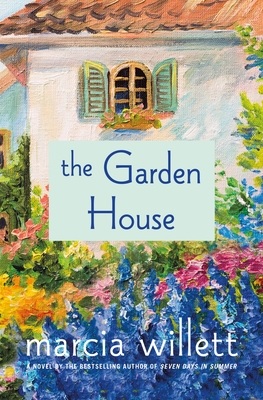 British author Marcia Willett, best known for her books set in the West Country, died on June 30 at age 76. She was a ballet dancer and teacher before launching her writing career at age 50. In an obituary released by Transworld, the publisher noted: "Marcia was born in Somerset but spent many of her years as an author living in a beautiful and wild corner of Devon, a part of the world that inspired the settings of many of her books. She had devoted readers all over the world, and her books have been published in 16 countries. Many of her readers have traveled to the U.K. to visit the settings of her books in the West Country."
British author Marcia Willett, best known for her books set in the West Country, died on June 30 at age 76. She was a ballet dancer and teacher before launching her writing career at age 50. In an obituary released by Transworld, the publisher noted: "Marcia was born in Somerset but spent many of her years as an author living in a beautiful and wild corner of Devon, a part of the world that inspired the settings of many of her books. She had devoted readers all over the world, and her books have been published in 16 countries. Many of her readers have traveled to the U.K. to visit the settings of her books in the West Country."
Willett's books include the Chadwick Family Chronicles series, as well as A Week in Winter; Seven Days in Summer; Homecomings; Reflections; Facing the Music; Sisters Under the Skin; Memories of the Storm; Postcards from the Past; Indian Summer; Summer on the River; and The Songbird. She wrote a total of 31 novels, including four under the pseudonym Willa Marsh. Her most recent book was The Garden House (2021), in which a young woman unravels her late father's secrets at his countryside home. Willett's final work, the novella Christmas at the Keep, will be published by Transworld on October 20.
Read what writers are saying about their upcoming titles


